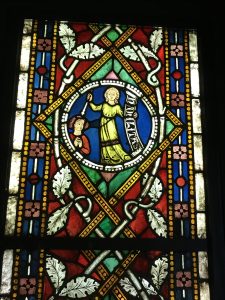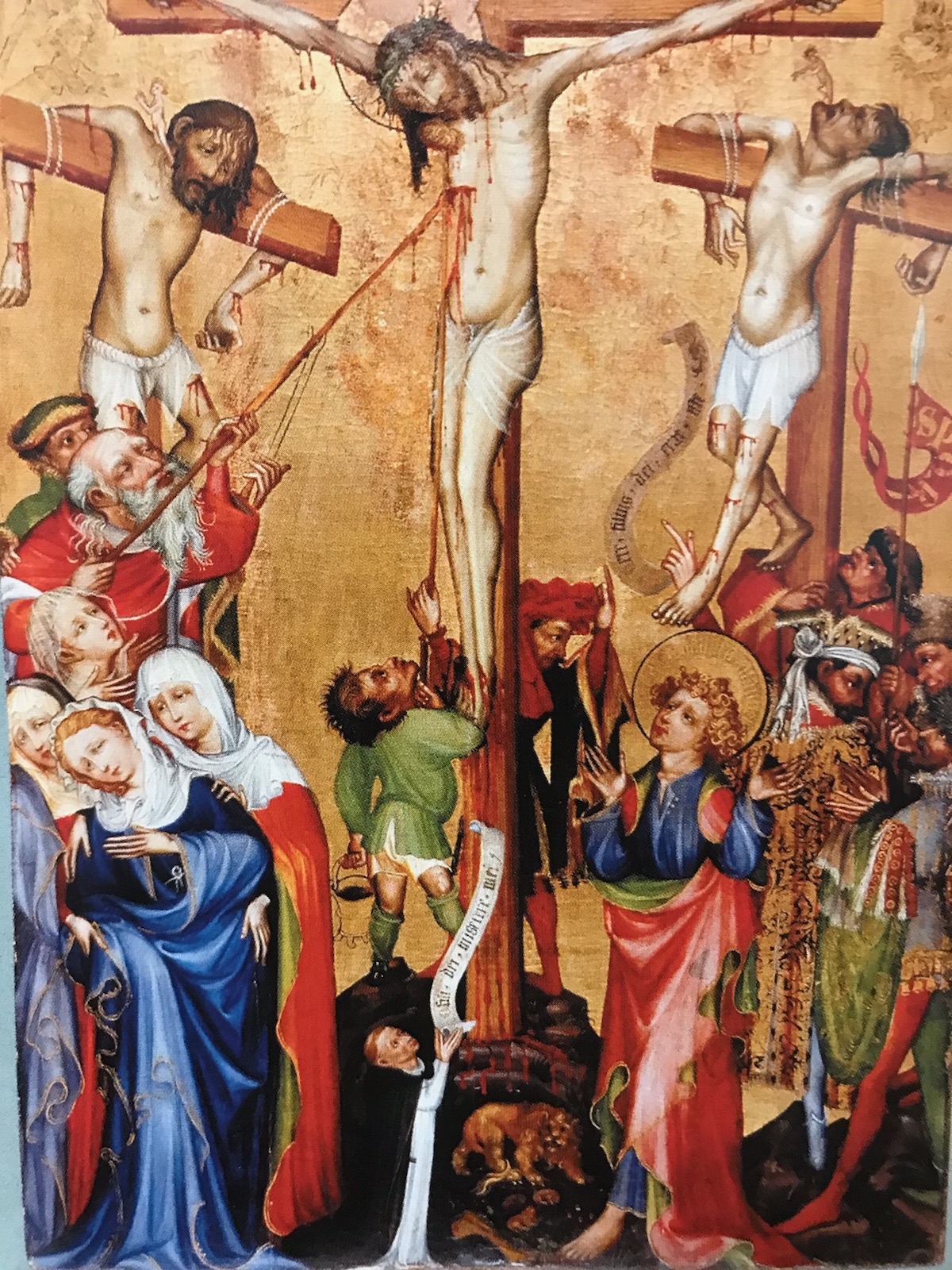“[The psalmist] says next: the back of his back is like pale gold. Better pale gold than glittering brass: ‘the foolishness of God is wiser than men.’ Gold is the Word, gold is wisdom. This gold discolored itself, concealing the form of God and displaying the form of a servant. It also discolored the Church, which says: ‘Do not gaze at me because I am swarthy, because the sun has scorched me.’ So then, her back is like pale gold, because she did blush at the swarthiness of the cross, she was not terrified by the bitterness of the passion, she did not flee from the ugliness of the wounds. She even takes joy in them, and hopes that her last end may bear their likeness. Accordingly she hears [the words]: ‘My dove in the clefts of the rock’, because all her affections are preoccupied with the wounds of Christ; she abides in them by constant meditation. From this comes endurance for martyrdom, from this her immense trust in the Most High. The martyr need not be afraid of raising his bloodless and bruised face to him by whose wounds he is healed, to present to him a glorious likeness of his death.”*
Here we read one of Bernard of Clairvaux’s beautifully written sermons on the Song of Songs. He followed (and expanded) the traditional monastic exegesis of this ancient love poem as a depiction of the mystical union between the Christian and Christ. He adds a discussion of martyrdom in this sermon. Notice the martyr draws strength from meditation on the wounds of Christ. The martyr’s heart focuses on the ugliness and torture of the cross but this strengthens the martyr’s resolve. In this way, the martyr perseveres to the end. Bernard concludes:
“While gazing on the Lord’s wounds he will indeed not feel his own. The martyr remains jubilant and triumphant though his whole body is mangled; even while the steel is gashing his sides he looks around with courage and elation at the holy blood pouring from his flesh. Where then is the soul of the martyr? In a safe place, of course; in the rock, or course; in the heart of Jesus, of course, in the wounds open for it to enter.”**
How does the martyr do this? Love. The bodily and emotional pain are present, but the martyr rejects them for the love of Christ.
*Bernard of Clairvaux, Sermon 61. III. 7, trans. Kilian Walsh, On the Song of Songs III (Kalamazoo 1979), p. 146. [Emphasis added]
**Idem, Sermon 61.III.8, p. 147.


